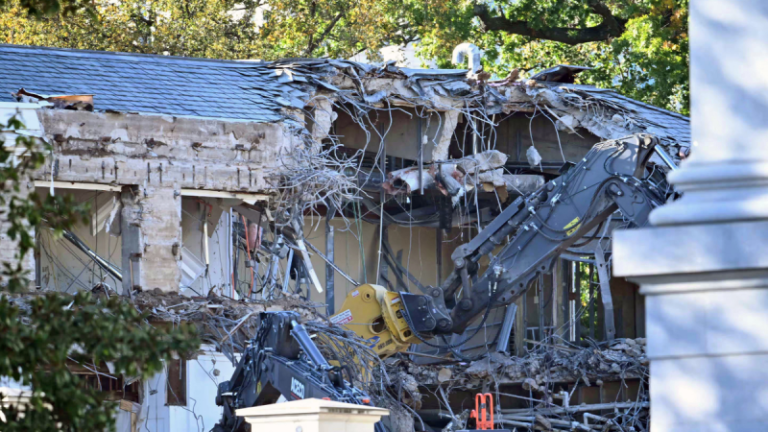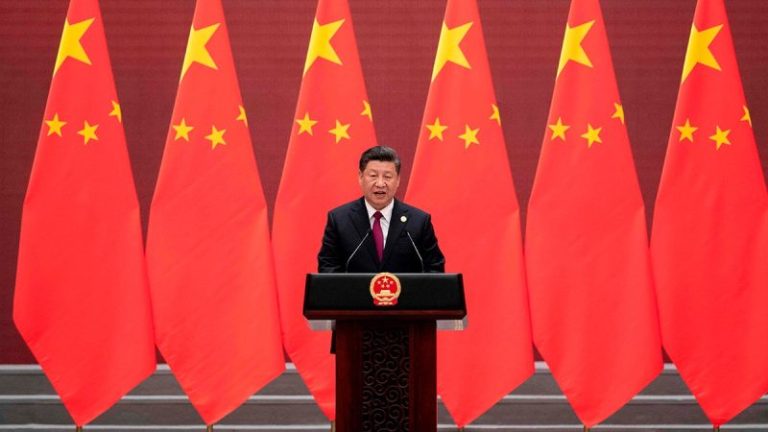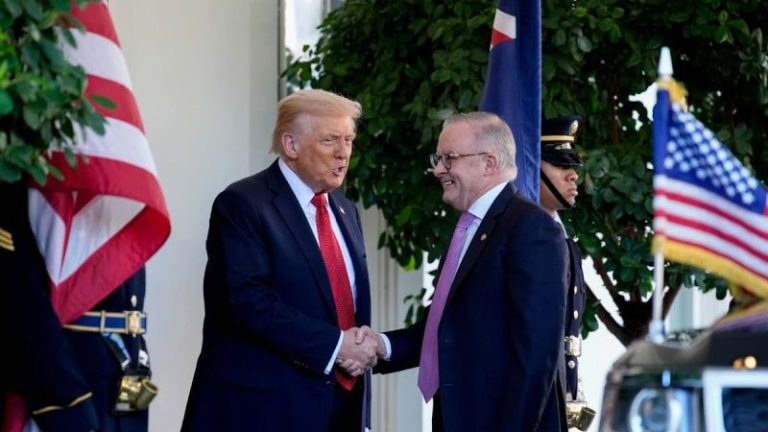In late September 2017, Palestinian American activist Linda Sarsour, once the darling of the Women’s March and the self-declared face of the ‘resistance’ against Donald Trump, was facing mounting criticism for antisemitic remarks and her embrace of extremist views.
But, beaming in a photograph taken on a city sidewalk, Sarsour appeared unfazed, her iconic fist pumped in the air as she knelt shoulder-to-shoulder with campaign volunteers for City Council candidate Khader El-Yateem. The photo was posted by El-Yateem on the Facebook page he used to promote his campaign, which he lost, but among the smiling faces was a young organizer named Zohran Mamdani.
That photo would mark the start of a carefully constructed political project that, in less than a decade, would propel a now-34-year-old socialist newcomer to the precipice of running America’s largest city – even while campaigning with radical imams, some of whom have supported terrorists and terrorist financiers.
A Fox Digital investigation reveals that Mamdani’s rise was no accident. It was engineered.
A database of 110 groups backing Mamdani exposes a tight inner circle of organizations that identify as Muslim or socialist, working hand-in-glove with 76 Democratic Party affiliates, allied groups and unions. Particularly important in this political machine are two networks – Sarsour’s MPower organizations and another constellation of groups called Emgage, with which she works closely.
The organizations have been generously funded. In total, billionaire George Soros’ Open Society philanthropies have given MPower and Emgage nearly $2.5 million in recent years, according to tax filings.
‘We fund a range of civil society organizations that work to deepen civic engagement through peaceful democratic participation, counter discrimination including against Muslim Americans and advance human rights,’ a spokesperson for Open Society Foundations told Fox News Digital. ‘The grants that you cite all occurred years before the mayoral race, and we are a nonpartisan organization that does not fund political candidates and their campaigns.’
Mamdani, Sarsour and the groups supporting Mamdani’s campaign didn’t return requests for comment.
MPower and Emgage have been part of a tight inner circle of 30 ethnic and religious groups, that also includes CAIR Action, the 501(c)(4) political wing of the 501(c)(3) Council on American-Islamic Relations nonprofit, the Islamic Circle of North America,’ ‘Muslim Action Coalition,’ Yemeni American Merchants Associations Inc., the ‘Bangladeshi American Advocacy Group’ and ‘Desis Rising Up and Moving.’ They have pumped up Mamdani’s campaign with social media campaigns, canvassing, voters and buzz.
Altogether, they have annual revenues of about $24 million, and they have worked to promote Mamdani’s campaign with endorsements, fund-raising, social media campaigns and canvassing.
The result: a carefully constructed political career that mainstreams the socialist goals long embraced by Sarsour and fellow members of the Democratic Socialists of America.
It’s a machine that is expressing itself in races from New York to Virginia, Minnesota, Texas and California with MPower and Emgage aligning with the Democratic Socialists of America and the Democratic Party to propel candidates who may share their views. In a campaign called ‘Defend and Advance,’ Emgage SuperPac is pushing Mamdani and Democratic Virginia Lt. Governor candidate Ghazala Hashmi as its ‘star candidates.’
Emgage’s ‘Defend and Advance’ roster of supported candidates and office holders includes Dearborn, Mich., Mayor Abdullah Hammoud.
‘I want you to know as mayor, you are not welcome here,’ Hammoud recently told a Christian pastor who objected to a proposal to name a street in honor of a local man who had allegedly praised terrorist groups Hamas and Hezbollah. ‘And the day you move out of the city will be the day that I launch a parade celebrating the fact that you moved out of the city because you are not somebody who believes in coexistence.’
Emgage’s donations include $175,000 from a group little-noticed by political observers but important in Islamist circles: Sterling Charitable Gift Fund, based in Herndon, Va. It is part of a network of groups that FBI agents raided in 2002 as part of wider investigations into the funding of Palestinian terrorist groups, including Hamas. Federal prosecutors ultimately didn’t file criminal charges against any officials at Sterling Charitable Gift Fund.
Over almost a decade, Sarsour and her allies have orchestrated a network of well-financed and tightly connected socialist activists, radical imams, political organizers and nonprofit organizations funded with millions of dollars by major philanthropies, including Foundation to Promote Open Society, the Ford Foundation, Macarthur Foundation and the Tides Foundation.
The confluence of big philanthropy, partisan operatives and clerical authority has helped drive Mamdani’s ascent. Its architecture combines nonprofit activism with faith-based politics and the precision of a professional campaign operation.
‘To the casual observer, Zohran Mamdani’s rise might appear meteoric – a story of grassroots energy and demographic change in America’s largest city,’ said Dalia Al-Aqidi, an Iraqi American Muslim who is running against Democratic Rep. Ilhan Omar in Minnesota, with Omar supported by the same kind of political machine being unleashed to propel Mamdani to office.
‘The data, the money trail and the affiliations, from the Democratic Socialists of America to the Islamists, tells a different story.’
‘Mamdani’s ascent is the product of deliberate design: a sophisticated collaboration between socialist activism and Islamist organizing, lubricated by millions in foundation grants and political donations and normalized through a revolving door of political operatives and nonprofits who embrace Islamists, the destruction of the state of Israel and hostilities to the police, the U.S. and the West,’ Al-Aqidi said.
The timeline of Mamdani’s rise tracks precisely with the growth of this network. In 2012, as a student at Bowdoin College, in Maine, he cofounded a chapter of Students for Justice in Palestine, the campus organization known for its rabid anti-Israel activism. By 2017, he was canvassing for El-Yateem’s campaign with Sarsour’s mentorship.
In 2018, Mamdani formally entered Sarsour’s orbit through the Muslim Democratic Club of New York, an organization she co-founded in 2013 to mobilize Muslim voters and elect progressive Democrats to local office. The Muslim Democratic Club of New York served as both incubator and amplifier for Sarsour’s political brand, one that fused progressive politics with an explicitly Islamist social identity. By December 2018, Mamdani joined the board, in an announcement in which the group said, ‘Help build Muslim power across the city with us!’
With his new role, Mamdani gained access to an emerging infrastructure of influence: voter lists, donor networks and organizing muscle that would later power his campaign to a seat on the New York General Assembly. The Muslim Democratic Club endorsed Mamdani.
Around that time, Sarsour was building her own empire, founding MPower Change as a 501(c)(3) nonprofit housed at Neo Philanthropy Inc. Public filings show MPower Change took in at least $2.4 million between 2017 and 2024, the latest year available, with Soros’s Foundation to Promote Open Society giving her organization $1.125 million and the Macarthur Foundation funneling her $450,000. It would become a flagship digital organizing hub for not just Sarsour but Mamdani.
Meanwhile, Emgage Action was expanding its footprint nationally. Also backed by the Open Society network, Emgage Action received a share of $42.5 million that Soros’ foundations pledged to Muslim, Arab and South Asian civic groups beginning in 2021. It has received $1.8 million from the Open Society Policy Center and another $1.35 million from the Foundation to Promote Open Society.
Together, MPower Change and Emgage created an unprecedented financial and political ecosystem, leveraging big philanthropy’s dollars and digital strategy to elevate candidates like Mamdani under the banner of Muslim empowerment.
In 2020, Mamdani won his first election to the New York State Assembly, with Sarsour’s explicit endorsement and fundraising help.
By 2020, Mamdani was being featured in Sarsour’s #MyMuslimVote summit, promoted by MPower Change as the face of a new generation of unapologetic Muslim progressives. By this year, his campaign for mayor became the culmination of that project — backed by PAC money, boosted by clerical endorsements and legitimized by an activist ecosystem that had spent a decade grooming him for this very moment.
To push Mamdani toward the helm of the nation’s biggest city, the network extended far beyond activist circles. Central to Mamdani’s political ascent was a series of carefully cultivated relationships with clerics with some troubling views.
In January, Mamdani courted Imam Muhammad Al-Barr of the Islamic Society of Bay Ridge, visiting his mosque just months after Al-Barr had publicly prayed to ‘annihilate’ Israel.
In May, Imam Siraj Wahhaj, the longtime imam of Brooklyn’s Masjid At-Taqwa, personally donated $1,000 to the Unity and Justice Fund. More recently, Mamdani met with Wahhaj and called him ‘one of the nation’s foremost Muslim leaders and a pillar of the Bed-Stuy community.’
Wahhaj, who served as a character witness in the trial of Omar Abdel-Rahman, the ‘Blind Sheikh’ later convicted of masterminding the 1993 World Trade Center bombing, has a long history of calling for the exploitation of America’s democracy to further a conquest for Islam.
‘You don’t get in politics because it’s the American thing to do,’ he said in a videotaped 1991 sermon. ‘You get involved in politics because politics can be a weapon to use in the cause of Islam.’
Wahhaj has also denounced the U.S. government as ‘controlled by Shaitan,’ the Arabic word for the devil, urged Muslims not to befriend ‘non-believers,’ condemned homosexuality as ‘a disease of this society,’ and supported Islamic laws that punish sex outside of marriage with 100 lashes and stoning. In 2011, Wahhaj urged Muslims to donate to the legal defense of the since-convicted Aafia Siddiqui, a Pakistani neuroscientist dubbed ‘Lady Al Qaeda’ for attempting to kill U.S. troops in Afghanistan.
Over the years, Wahhaj’s sermons have praised ‘jihad’ without ‘a gun,’ called for an Islamic America governed by sharia law and urged the creation of an ‘army of 10,000 men in New York City.’
Other imams now backing Mamdani’s mayoral run have also been controversial. Imam Talib Abdur-Rashid, a cleric leading the Mosque of Islamic Brotherhood in Harlem, co-founded the Muslim Alliance in North America, alongside Wahhaj. In 2005, Abdur-Rashid publicly defended Rafiq Sabir, an American doctor who joined al Qaeda and was subsequently sentenced to 25 years in prison.
In 2008, Abdur-Rashid defended Sami Al-Arian, a Palestinian American professor whom the U.S. later deported to Turkey for ‘conspiring to provide services’ to Palestinian Islamic Jihad. Still in the U.S., Al-Arian’s wife joined the anti-Israel encampments at Columbia University.
In September, Mamdani appeared as the special guest speaker at Abdur-Rashid’s annual gala. A month earlier, Muslim Association of North America’s social media featured Abdur-Rashid visiting Wahhaj’s mosque, underscoring the continued collaboration between the two imams.
In Manhattan, Imam Khalid Latif, the executive director of the Islamic Center at New York University, has been another prominent Mamdani backer. Latif publicly endorsed Mamdani on Facebook in June, calling him ‘a bearer of compassion in a time where it is far too rare.’
In 2012, Latif led a pilgrimage to Saudi Arabia that included Omar Mateen, who would later murder 49 people at the Pulse nightclub in Orlando, the deadliest anti-LGBTQ attack in U.S. history. He has denied radicalizing Mateen and he hasn’t faced the same type of allegations that surround the other imams.
For many Muslim political organizations backing Mamdani, these clerics are not liabilities but assets, serving as trusted gatekeepers to the city’s growing community of Muslim voters.
After Mamdani visited Wahhaj’s mosque earlier this month, he tweeted out a photo of the two with the caption: ‘Pleasure to meet Imam Siraj Wahhaj, one of the nation’s foremost Muslim leaders.’ When a firestorm ensued, several allies rose to his defense: Sarsour, the Council on American-Islamic Relations and the leaders at Emgage Action.
Sarsour shared a selfie with Mamdani, beaming, like they did back in 2017, and wrote, ‘May Allah continue to bless and protect you.’
A defiant Wa’el Alzayat, the executive director of Emgage Action, sent out a dispatch to followers on Tuesday, amid criticism for their political work, promising, ‘We are in this for the long haul.’
Back in Minnesota, Al-Aqidi closely watched the defense of Mamdani.
‘For over a decade, Linda Sarsour and her network of allies have built the Mamdani machine piece by piece: the institutions, the donors, the narratives and now, the candidate. There was no way they were going to throw him under the bus for one photo with one imam whom they happen to love,’ said Al-Aqidi. ‘Mamdani is the fresh face of a radical coalition, and I hope New Yorkers will reject him. Win or lose, one fact remains undeniable. His rise was not spontaneous. It was engineered and the machinery behind it is only getting stronger.’
Al-Aqidi said; ‘I hope New Yorkers will shut the Mamdani machine down.’
This post appeared first on FOX NEWS










